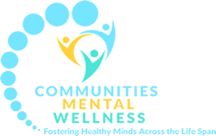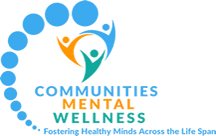FREQUENTLY ASKED QUESTIONS (FAQs)
A. GENERAL QUESTIONS
- What is mental health?
Mental health is everything to do with our emotions (how we feel), psychological well being (how we think), and relationships with our environment (how we act).
- Is mental health all about “madness”/ “being crazy”?
No. Mental health is not necessarily about being mad or crazy. Even people who appear normal in their behaviour experience mental health problems.
- What is mental illness/ mental health disorder?
A mental illness, or mental health disorder, is defined as patterns or changes in thinking, feeling or behaving that cause distress or disrupt a person’s ability to function.
- What are the examples of common mental health conditions?
Some of the common mental health problems include Depression, Psychosis, Schizophrenia, Alcohol and Substance use, Suicide and Suicide thoughts.
- What are some of the warning signs and symptoms for mental health?
Hearing voices in your head, seeing images that are not present, feeling hopeless about life, lack of interest in things that used to be interesting, feeling like taking away your life, feeling anxious about anything . . .
- What are the causes of mental health problems?
There is no sure answer to this. But exposure to some environmental toxins and disease to family history of certain conditions has been associated with likelihood to mental health problems.
- Is there a relationship between witchcraft and mental health problems?
In most African communities, mental health problems have been associated with mental health conditions like psychosis but that is usually FALSE.
B. PARENTING & CHILD DEVELOPMENT
- What is child development?
Child development starts before one gets pregnant, and the baby continues to grow even while in the tummy. The pregnancy period and the first five years of life are crucial for child development. The parent(s) should ensure they attend the relevant antenatal and prenatal clinics and follow advice given by healthcare workers.
- What are mental health disorders in children?
Mental health disorders in children are generally defined as delays or disruptions in developing age-appropriate thinking, behaviors, social skills or regulation of emotions. These problems are distressing to children and disrupt their ability to function well at home, in school or in other social situations
- Can a young child experience a mental health problem?
Yes, worldwide 1 in every 10 children and adolescents experience mental health problems.
- Which mental health disorders are mostly seen in children?
a). Behavior problems are the most common mental health problems experienced in children and adolescents aged 3-17 years (7.4%).
b). Anxiety problems are the second most common mental health problems in children and adolescents aged 3-17 years (7.1%).
c). Depression is the third most common mental health problems experienced in children and adolescents aged 3-17 years (3.2%).
- How can I identify warning signs of mental health problems from my child?
a). Decline in school performance
b). Poor grades despite strong efforts
c). Constant worry or anxiety
d). Repeated refusal to go to school or to take part in normal activities
e). Hyperactivity or fidgeting
f). Persistent nightmares
g). Persistent disobedience or aggression
h). Frequent temper tantrums
i). Depression, sadness or irritability
j). Repeated use of alcohol or drugs
k). Severe mood swings that create problems in relationships with people around the child.
Remember: Just because you notice one or more of these changes does not mean your child or youth has a mental health problem.
- What affects children’s mental health?
a). Persistent poverty
b). Recurrent abuse
c). Chronic child neglect,
d). Domestic violence
e). Parental mental health
f). Parental substance abuse problems
- Can my mental status, as a parent, affect my child’s growth and development?
Parental mental illness has been shown to affect attachment formation and the cognitive, emotional, social and behavioural development of children. These children are also at increased risk of developing psychiatric disorder in childhood, adolescence and later adult life.
- How can I help my child cope with mental health issues?
a). Help children build strong, caring relationships:
- It’s important for children and youth to have strong relationships with family and friends. Spend some time together each night around the dinner table.
- A significant person who is consistently present in a child’s life plays a crucial role in helping them develop resilience. This person—often a parent or other family member—is someone your child spends a lot of time with and knows they can turn to when they need help.
- Show your children how to solve problems.
b). Help children and youth develop self-esteem so that they feel good about themselves:
- Show lots of love and acceptance.
- Praise them when they do well. Recognize their efforts as well as what they achieve.
- Ask questions about their activities and interests.
- Help them set realistic goals.
c). Listen, and respect their feelings:
- It’s OK for children and youth to feel sad or angry. Encourage them to talk about how they feel.
- Keep communication and conversation flowing by asking questions and listening to your child. Mealtime can be a good time for talking.
- Help your child find someone to talk to if they don’t feel comfortable talking to you.
d). Create a safe, positive home environment:
- Be aware of your child’s media use, both the content and the amount of time spent on screens. This includes TV, movies, Internet, and gaming devices. Be aware of who they might be interacting with on social media and online games.
- Be careful about discussing serious family issues—such as finances, marital problems, or illness—around your children. Children can worry about these things.
- Provide time for physical activity, play, and family activities.
- Be a role model by taking care of your own mental health: Talk about your feelings. Make time for things you enjoy.
e). In difficult situations, help children and youth solve problems:
- Teach your child how to relax when they feel upset. This could be deep breathing, doing something calming (such as a quiet activity they enjoy), taking some time alone, or going for a walk.
- Talk about possible solutions or ideas to improve a situation and how to make it happen. Try not to take over.
- Where can I find help for my child?
There are many ways to help your child achieve good mental health. Sharing your concerns with the doctor is one of them. Talk to your child’s doctor:
- if the behaviours described above last for a while, or if they interfere with your child’s ability to function;
- if you have concerns about your child’s emotional and mental health;
- about your child’s behavioural development and emotional health at each well-child visit.
If your child or teen talks about suicide or harming themselves, call your doctor or local mental health crisis line right away.
E. I FEEL LIKE I NEED TO TALK TO SOMEONE
If you like you need to talk to someone or a counsellor:
Send an email to: (communitiesmentalhealth@gmail.com)
Call or SMS to: (0798862533)
Send a private message to: (WebsiteLinkFBTwitterHandle)

